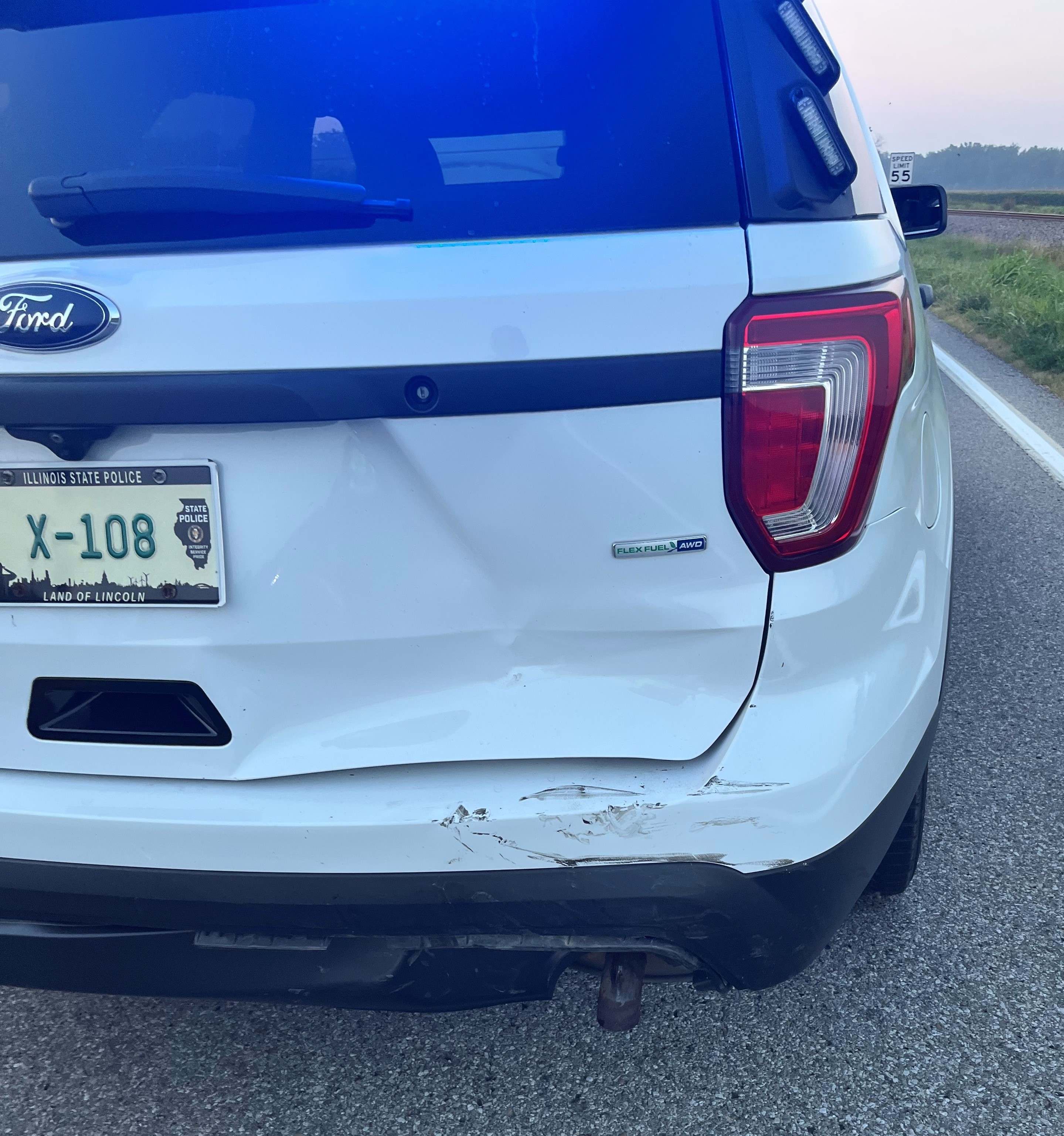ILLINOIS STATE POLICE SQUAD CAR STRUCK ON IL-34
ISP Experiences 8th Move Over Law-Related Crash of 2025
August 8, 2025

FOR IMMEDIATE RELEASE
August 8, 2025
GALATIA – Illinois State Police (ISP) officials investigated a traffic crash that occurred on IL-34 one mile west of Harco Road in Saline County involving an ISP trooper. The trooper was on scene of a previous, fatal traffic crash when their squad car was struck by a driver who failed to move over.
On August 8, 2025, at approximately 5:08 a.m., two ISP troopers were parked on IL-34 west of Harco Road with emergency lights activated blocking westbound traffic to secure a crash scene. An individual driving a Ford Escape westbound struck the rear of one of the squad cars. Both troopers were outside of their squad cars at the time of the crash. The driver of the Ford Escape, 66-year-old Sandra S. Kahl of Thompsonville, IL, and both troopers were uninjured. Kahl was cited for Move Over Law violations and Failure to Reduce Speed to Avoid an Accident.
In 2025, ISP has already suffered eight Move Over Law-related crashes. In 2024, ISP suffered 27 Move Over Law-related crashes with 12 troopers injured and one death. In 2023, ISP had 21 Move Over Law-related crashes with seven troopers injured. ISP reminds the public the Move Over Law, also known as “Scott’s Law” in Illinois, requires all drivers to move over when approaching an emergency vehicle or any vehicle with its emergency or hazard lights activated.
A person who violates the Move Over Law faces a fine of no less than $250 and no more than $10,000 for a first offense. If the violation results in injury to another person, the violator’s driver’s license will be suspended for a mandatory period of anywhere between six months and two years. Additional information about ISP related crashes can be found at the following link: https://isp.maps.arcgis.com/apps/dashboards/340d57cd956c453da2de25af804c268d.

The charges are not evidence against the defendant, and the defendant is presumed innocent until proven guilty beyond a reasonable doubt in a court of law.
###